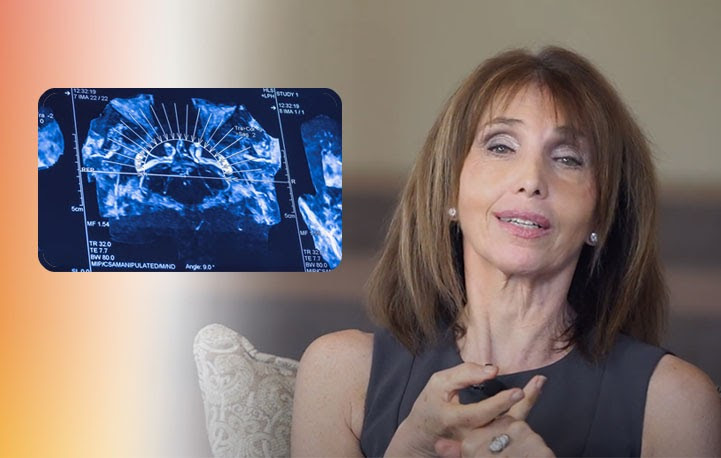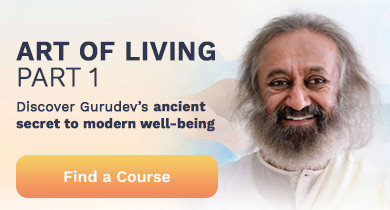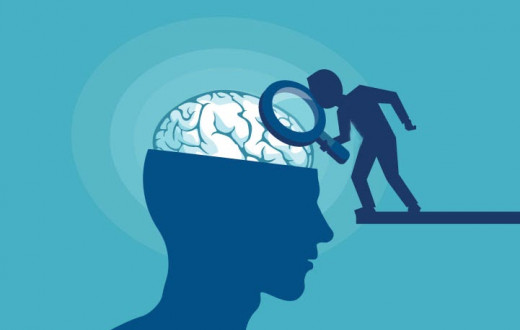
Did you know that unless we do something proactively, the human brain (your brain!) will begin to atrophy (essentially decline) by the time we’re aged 28. And by 40, it will atrophy at 5% per decade.
Why does brain matter, matter? Cognitive decline impacts your entire quality of life—whether it’s your ability to think quickly and creatively, or through forgetfulness, mild cognitive impairment, to the more severe stages of dementia—brain function is key.
So even when there is so much at stake, how often do you wake up with brain health being your number one priority? Everyday? Thought not!
What can we do today? Science has discovered a powerful connection between meditation and brain health. Through mindfulness and other practices of meditation, research shows meditators can effectively reverse the trend of decline and actually increase their brain cells, gray matter.
It seems meditation is fast becoming the solution for all-around mind-body well-being—reducing stress, anxiety, depression, slowing aging, and improving sleep and physiological functions...and now your gray matter!
But how does meditation impact the brain and what cognitive benefits of meditation can you expect to see every day, once you start a meditation practice—let’s find out.
Can meditation change the way you think?
Should I, shouldn’t I, what do I do?! Ah, the balancing act of making decisions—some come easy, others can be long and excruciating, others rash and regretful! Aside from writing a pro and con list, resorting to rolling a dice, or whatever method you exercise for making tricky decisions, there is something else that you can do to make future decision-making a calm and clear process. Hurrah!
Research published in NeuroReport shows that meditation increases gray matter in the frontal cortex, specifically the prefrontal cortex, an area of the brain responsible for regulating emotions and supporting creative, effective decision-making. So to make better decisions—strengthen your prefrontal cortex by beginning daily meditation!
Tired of being worried, anxious, and fearful? How to reduce the fear response for good
The amygdala is known as the emotional and fear center of the brain. And whilst there are other bodily systems also involved in this dynamic, it plays an important role in emotion regulation and the triggering of the ‘fight-or-flight’ response—a very useful function for survival when it operates normally.
However, in today’s society, stress is rampant and everywhere! We find ourselves in this innate ‘fight-or-flight’ response more than is necessary. In reality, we are not being chased down the street by a hungry tiger throughout the day, it may be simply that we’re late for an important meeting. But the body-mind complex, as it is on high alert, responds as if the former is true. The stress hormone, cortisol, floods the body, anxiety becomes the norm, and the rest and digest aspect of the nervous system is overshadowed. We feel frazzled!
The good news is that studies have identified decreased gray matter volume in the amygdala in meditators, which could indicate why those who meditate have reduced stress reactivity. Doesn’t that sound amazing?! Living less-stressed, regardless of what is happening around you, and being able to decide not to respond to every situation as if a tiger is chasing you! Bliss.
What happens to the brain when meditating?
Research at UCLA further suggests that meditating actually increases the size of the brain region associated with positive emotions. This is supported by one of the world's leading investigators in the field of neuroplasticity, neuroscientist Dr. Richard Davidson’s findings at the University of Wisconsin-Madison, when he discovered the man subsequently named the “happiest person in the world”—the monk Matthieu Ricard. Scientists connected 256 electrodes to the monk’s skull and conducted three hours of continuous MRI scanning, as part of the research of long-term meditators, and had results “never reported before in the neuroscience literature.” Scientists were astonished at Ricard’s abnormally large capacity (in the brain) for joy. And this was mirrored in one of the largest studies to date, also by the University of Wisconsin-Madison, in which researchers examined brain activity in non, new, and long-term meditators.
It’s important to state here that meditation benefits aren’t isolated to just monks or for those who have meditated for an extended length of time, but even in those new to meditation. How long does meditation take to change your brain? The changes can start to appear in just a few weeks of daily practice. Later, we’ll introduce an evidence-based technique you’ll want to try straight away!
Meditate, and you increase your capacity of feelings of joy and contentment, as well as benefit from stress reduction and decreased anxiety.
Is it possible to be super alert and mentally relaxed?
Imagine going through life with a sharp mental focus, which surpasses that of medical researchers. This was seen in a study, which compared practitioners of a specific meditation technique SKY Breath Meditation (SKY), to medical researchers. They discovered the SKY practitioner group had significantly greater mental focus, indicated by an EEG, a brainwave pattern called beta, than the control group of medical doctors and researchers, and they also had an increase in alpha waves—found within the slow, relaxing meditative state.
So what this means is that people who practice SKY have been seen to go through life in this extraordinary state of being super alert and mentally relaxed—at the same time! Amazing, isn’t it? Furthermore, a recent study at Yale University compared the effectiveness of SKY Breath Meditation with a mindfulness-based practice and found the former to provide far greater results.
Goodbye forgetfulness, hello memory!
Lost your keys? Forgot a friend or partner’s birthday? Don’t recall key pointers on a recent online course? Whatever it is—most of us would prefer to recall both the important and the little things in life. It all helps!
The hippocampus plays a major role in memory. In studies, this brain structure appears to be larger in those who have meditated for some time compared to those who had never meditated—they discovered a meditation practice essentially thickens the hippocampus.
Why is this important? This region of the brain plays a vital role in not only memory encoding and consolidation for both short and long-term memory, but learning and spatial orientation—thank goodness! Let’s get flexing that brain tissue!
Forever young—this is the way to go
Modern advances mean we can defy superficial, surface aging with cosmetic procedures, lotions, and potions—at a cost. But what about all the inner workings of the body that age, they still matter, even if they aren’t on display! A paper published in Frontiers in Psychology notes a way we can take care of our faculties—they observed “less age-related gray matter atrophy in long-term meditation practitioners.” Seems this is an accessible, inexpensive, and effective method to stay forever young(er)!
Optimize Your Chemical Factory
You may have heard that your brain is a chemical factory unlike anything else. Our brains manufacture chemicals (neurotransmitters) that aid the mind and body to function, for better or worse. When our brains do not manufacture enough of these vital chemicals our health and well-being suffer. However, researchers have found meditation can help increase certain beneficial chemicals.
Serotonin regulates your mood and meditation increases serotonin for that “feel good” feeling without trying to create that feeling with outside experiences. You have probably heard the phrase, “Happy without reason”, serotonin is one of the chemicals responsible for that happiness.
DHEA is known as the longevity hormone and is the reason why so many people who have meditated for many years do not look their age and may contribute to living longer. Meditation has been shown to boost DHEA levels.
Endorphins, another happiness neurotransmitter, increases with meditation and gives that “natural high” feeling we all love!
Growth hormone is responsible for the fat, muscle, tissue, and bones in our bodies and naturally decreases as we age. Growth hormone is also responsible for metabolism, insulin, and blood sugar levels. And you guessed it, meditation can help with that too!
Melatonin, a popular sleep aid, is a naturally occurring hormone that is responsible for restful sleep and mood regulation. Practice meditation and boost this sleep hormone!
All this and no pills to pop! A practice of meditation optimizes your brain’s chemical factory so you don’t have to worry about popping so many pills. Win-Win!
There’s more to protein than gym-based shakes!
There is a protein in the brain called brain-derived neurotrophic factor (BDNF), which research shows increases with SKY Breath Meditation (SKY) practice—it is responsible for laying down new neurons, new brain cells, which we can do till the day we die. We can mold and shape our brains. And considering our mind often determines our reality—this is a powerful evidence-based meditation practice to try. And there’s more! A recent Yale study supported previous independent studies that showed SKY significantly increased those qualities that make life most worth living—happiness, serenity, optimism, energy levels, social connection, and quality of life. Whilst also reducing levels of cortisol, the stress hormone, from the very first session. So if you are looking for reasons to meditate—those are some pretty great reasons to start with!
When you think of fitness, incorporate brain fitness, and become a SKY practitioner!
How to flush out toxins in your sleep
In the deepest stages of sleep, the brain flushes out toxins. Great! But, how many of us get a good nights’ rest? Very few. And if we don’t flush out toxins, it becomes a risk factor for dementia, Alzheimer’s disease, and mental impairment. SKY Breath Meditation to the rescue. Research shows SKY practitioners tend to spend more time in the deeper stages of sleep than age-matched controls. Here’s to many more restful, restorative, nights’ sleep.
Scientific benefits of meditation (as in SKY Breath Meditation)
78% reduction in serum cortisol levels (stress hormone)
Significant decrease in clinical/non-clinical depression and anxiety
87.5% reduction in blood lactate levels
Healthier blood pressure
Enhanced sleep
Greater mental focus
Would you like a taste of what’s possible?
Join us for a free workshop and discover how SKY can support your brain health and help you thrive! Register for free.
If you would like to improve your memory, increase mental focus, make better decisions, reduce anxiety, boost positive emotions, or simply grow your brain (!)—the answer clearly is to begin a daily meditation practice, as structural brain changes do not happen overnight but require sustained, regular attention. And the SKY Breath Meditation course will guide you every step of the way on the journey to cultivating that transformational habit!
There is so much more research out there, this is just a glimpse. Independent published research going back as much as four decades, found meditators exhibit higher IQ and improved academic performance, more accurate perception, improved creativity, faster reaction time, and more. The effects of meditation on neuroplasticity is a vast, incredible realm to explore!
Your brain is, in certain ways, a malleable piece of playdough. Choose to shape yours in the most positive, vibrant, alert, and awake way imaginable.
It’s time to meditate, isn’t it? Your brain will thank you!
Portions of this article were written by Eloise Ducker. She is a freelance copywriter and yoga teacher dedicated to creating space for people to breathe and find ease, wherever they are.
Disclaimer: This content on the Art of Living Blog is not intended to be a substitute for professional medical advice, diagnosis or treatment. Always seek the advice of your physician or other qualified health providers with any questions you may have regarding a medical condition. Any links to third-party websites are provided as a convenience only and the Art of Living Blog is not responsible for their content.






























